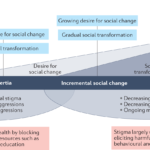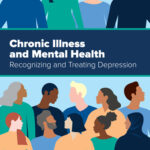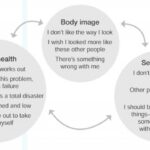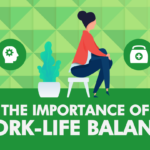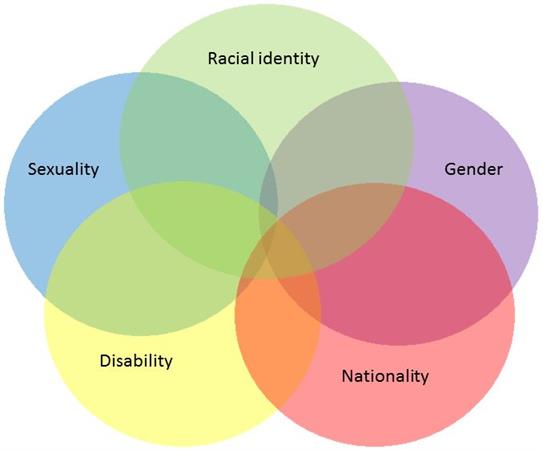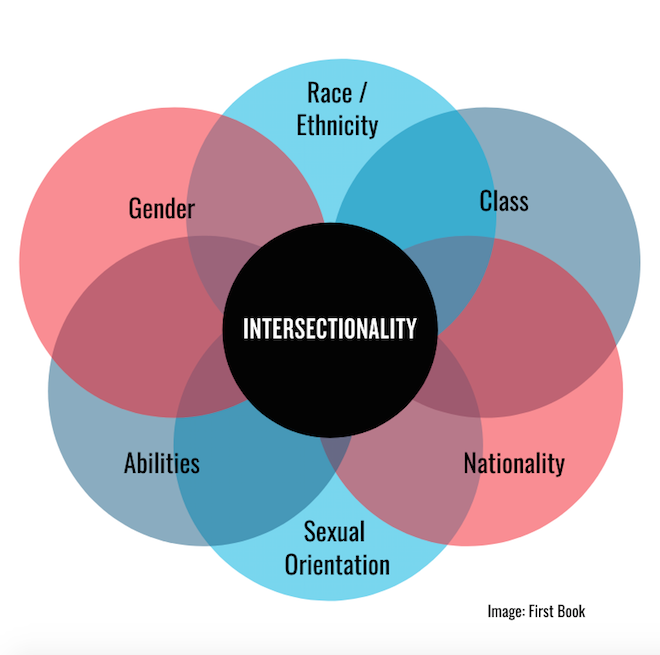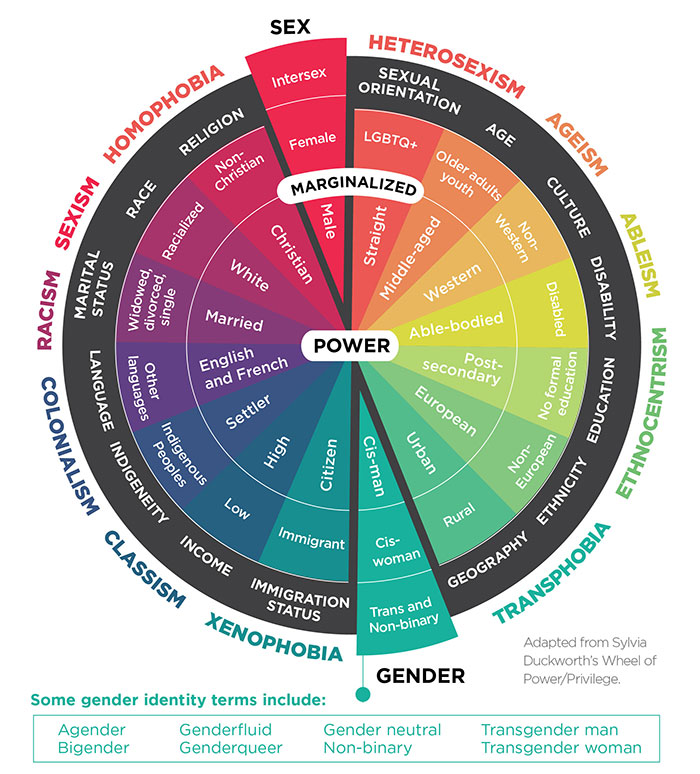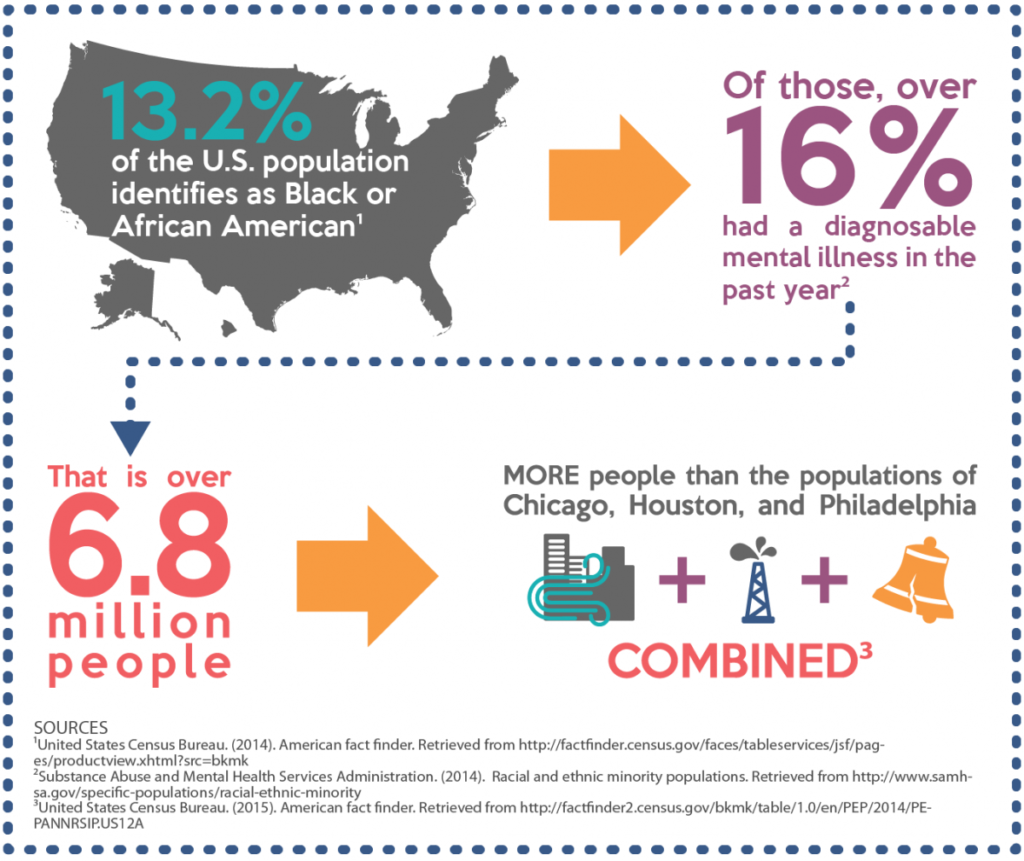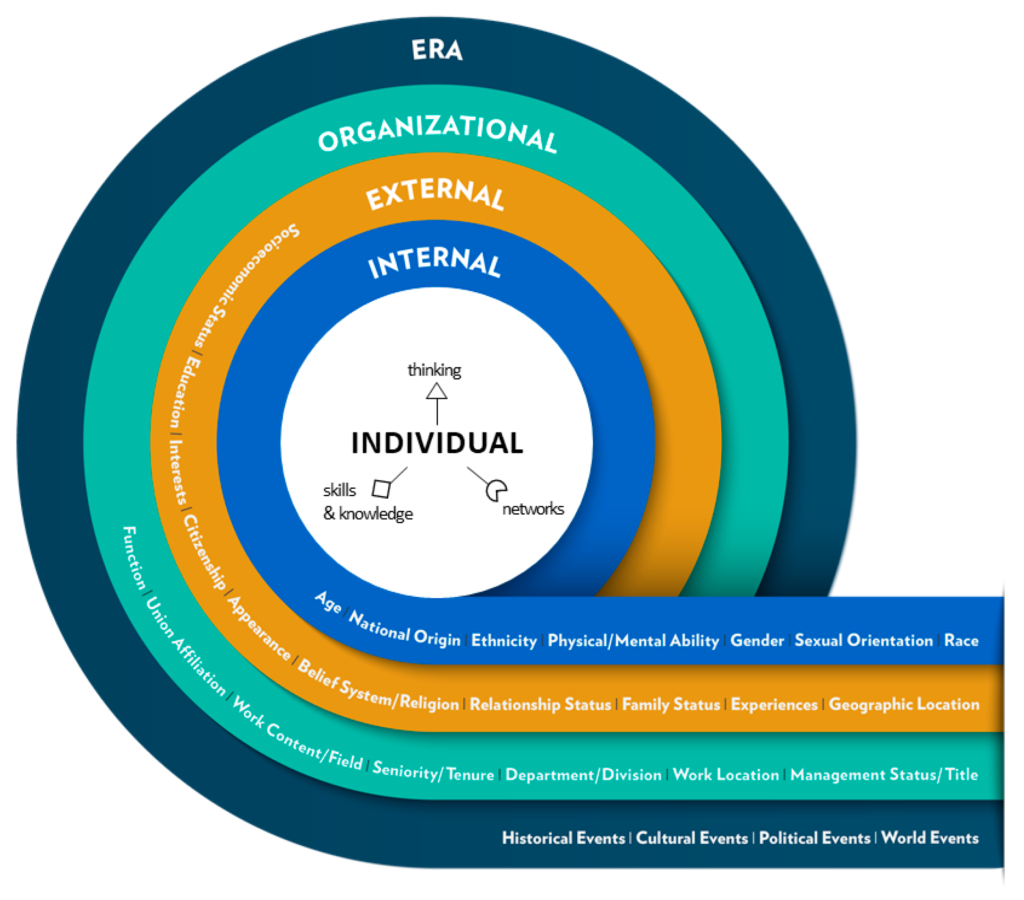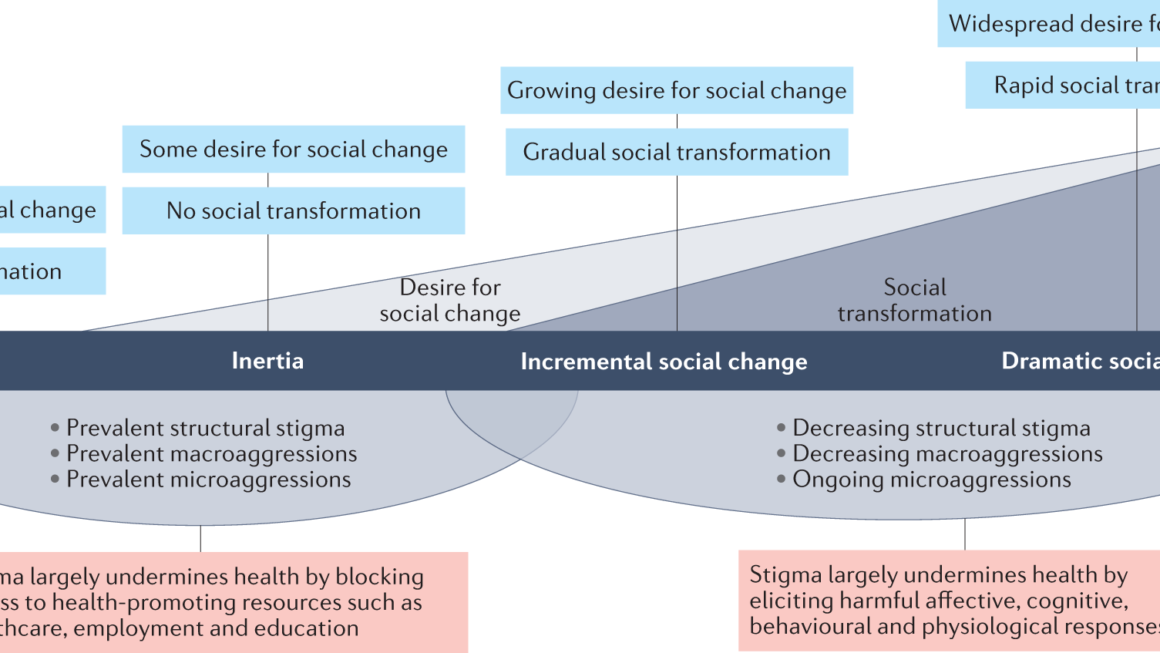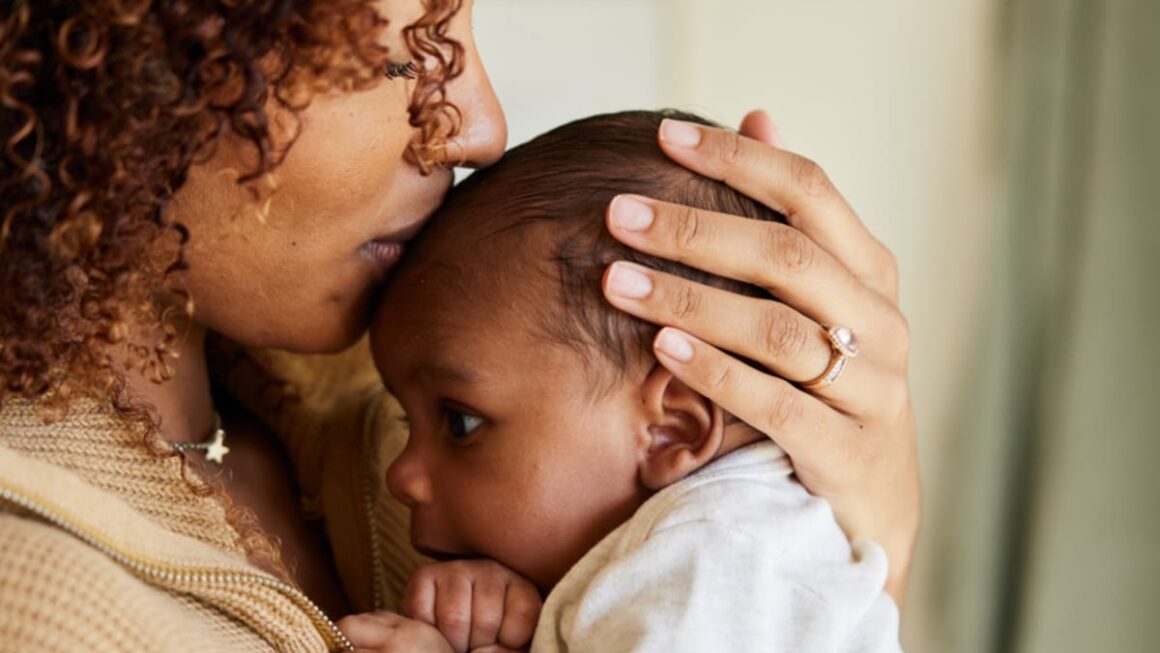In this article, we will explore the fascinating connection between race and gender and its profound impact on the mental health of women. By examining the intersection of these two important factors, we will gain a deeper understanding of how women from different racial backgrounds navigate and experience various mental health issues. Join us as we uncover the intricate web that connects race, gender, and mental well-being, and explore the ways in which this intersectionality shapes women’s lives.
Understanding the Intersectionality of Race and Gender
The concept of intersectionality refers to the interconnected nature of social identities, such as race and gender, and how they can overlap and intersect to shape individuals’ experiences and opportunities within societal systems. When it comes to women’s mental health, understanding the intersectionality of race and gender is crucial in recognizing the unique challenges and experiences that women from different racial and ethnic backgrounds may face. It goes beyond considering women simply as a monolithic group and acknowledges the diverse and multifaceted aspects of their identities.
Definition of Intersectionality
Intersectionality was coined by professor and scholar Kimberlé Crenshaw in 1989. It provides a framework for examining how different aspects of an individual’s identity and social categorizations interact and intersect to shape their experiences and marginalization within society. It recognizes that individuals can face multiple forms of oppression simultaneously and that these intersecting identities impact their lived experiences and access to resources and opportunities. In the context of race and gender, intersectionality sheds light on the unique challenges faced by women of different racial backgrounds and highlights the need for an inclusive and intersectional approach to mental health.
Overview of the Intersectionality of Race and Gender
The intersectionality of race and gender holds significant implications for women’s mental health. Women of various racial and ethnic backgrounds may experience distinct challenges and stressors that are influenced by both their gender and racial identities. These challenges can include the perpetuation of stereotypes and bias, racial and gender discrimination, socioeconomic disparities, and limited access to healthcare. Understanding and addressing these factors is essential for promoting the well-being and mental health of all women.
Societal Factors Influencing Women’s Mental Health
Stereotypes and Bias
Stereotypes and bias surrounding women from different racial backgrounds can contribute to negative mental health outcomes. These stereotypes can include harmful and limiting beliefs about intelligence, beauty standards, and societal expectations. For example, Asian women may face the stereotype of being submissive or exoticized, which can lead to feelings of objectification and a sense of invisibility. Similarly, Black women often contend with stereotypes of being aggressive or hypersexualized, which can result in heightened levels of stress and anxiety.
Racial and Gender Discrimination
Racial and gender discrimination can have profound implications for women’s mental health. Experiences of discrimination based on both race and gender can lead to chronic stress, anxiety, and depression. Women of color, in particular, may face intersecting forms of discrimination, leading to unique challenges and elevated levels of psychological distress. The long-term effects of discrimination can contribute to adverse mental health outcomes and exacerbate existing mental health conditions.
Socioeconomic Disparities
Socioeconomic factors intersect with both race and gender to influence women’s mental health. Women from lower socioeconomic backgrounds and marginalized racial groups may face increased exposure to chronic stressors, such as poverty, limited educational opportunities, and unstable employment. These socioeconomic disparities can lead to heightened levels of anxiety and depression and limit access to adequate mental healthcare resources.
Access to Healthcare
The intersectionality of race and gender can also impact women’s access to healthcare and mental health services. Women from marginalized racial and ethnic backgrounds may encounter additional barriers that hinder their ability to seek and receive culturally sensitive and appropriate care. These barriers can range from a lack of affordable healthcare options to language and cultural barriers. Limited access to services can further exacerbate mental health issues and prevent women from receiving the support they need.
Race, Gender, and Mental Health Disorders
Prevalence of Mental Health Disorders Among Women
Mental health disorders are prevalent among women, regardless of their racial background. However, the rates and types of disorders can differ based on the intersecting identities of race and gender. Research has shown that women, in general, are more likely to experience anxiety and depression compared to men. Moreover, data suggests that women from marginalized racial groups may be at an increased risk for certain mental health disorders, such as post-traumatic stress disorder (PTSD), due to their experiences with racism and discrimination.
Impact of Race and Gender on Mental Health Diagnoses
The intersection of race and gender can influence the way mental health disorders are diagnosed and perceived. Cultural norms and biases can impact how symptoms are interpreted and may result in underdiagnosis or misdiagnosis among women from different racial backgrounds. For example, symptoms of mental health disorders such as depression may be overlooked or attributed to cultural differences rather than recognized as indicators of a specific condition. This intersectional lens is important for mental health professionals to ensure accurate diagnoses and appropriate treatment plans.
Specific Mental Health Disorders Associated with Intersectionality
Certain mental health disorders have been found to disproportionately affect women from specific racial backgrounds. For example, research has indicated that Latinx women have higher rates of eating disorders compared to their counterparts from other racial backgrounds. Additionally, Indigenous women may face increased rates of substance abuse and addiction due to historical trauma and ongoing systemic inequalities. Understanding the intersectionality of race and gender helps shed light on these disparities and drives the need for tailored interventions and support systems.
Barriers to Seeking Mental Health Support
Stigma and Cultural Beliefs
Stigma surrounding mental health is a significant barrier faced by women from all racial backgrounds. However, intersecting identities can compound the stigma, making it even more challenging for women to seek support. Cultural beliefs and norms around mental health can shape individuals’ perceptions and hinder help-seeking behavior. For example, some communities may view mental health issues as a personal weakness or a result of spiritual imbalances, further deterring women from seeking professional help.
Lack of Culturally Competent Care
The lack of culturally competent mental health care can act as a barrier to seeking support for women from different racial backgrounds. Culturally competent care means professionals are knowledgeable about diverse cultural backgrounds and are able to provide personalized and relevant mental health services that address the specific needs and experiences of individuals. The absence of this type of care can contribute to feelings of mistrust and alienation, discouraging women from seeking help.
Language Barriers
Language barriers can create significant obstacles for women seeking mental health support. Women whose first language is not English may face difficulties in articulating their experiences and emotions, leading to miscommunication and potential misunderstandings during therapy sessions. The presence of language barriers can contribute to feelings of frustration and isolation, making it harder for women to fully engage in the therapeutic process and receive the care they need.
Financial Constraints
Financial constraints can also prevent women, especially those from marginalized racial groups, from accessing mental health support. Mental healthcare services can be expensive, and affordability can be a significant barrier, particularly for individuals with limited financial resources. The cost of therapy or medication can pose a substantial burden, leaving many women unable to prioritize their mental health due to financial constraints.
Psychosocial Stressors and Mental Health
Racial and Gender-Based Trauma
Women at the intersection of different racial and gender identities may experience unique forms of trauma. Racial and gender-based trauma can manifest in various ways, including experiences of racism, sexism, and violence. These traumatic events can have severe psychological impacts, leading to symptoms of anxiety, depression, and post-traumatic stress disorder (PTSD). The cumulative effects of these traumas contribute to the development and exacerbation of mental health disorders.
Microaggressions and Chronic Stress
Microaggressions, which are subtle and often unintentional acts of discrimination, can contribute to chronic stress and mental health challenges among women. Marginalized racial groups are more likely to experience microaggressions due to their intersecting identities. These daily experiences of subtle racism and sexism can take a toll on mental health, leading to increased levels of stress, anxiety, and low self-esteem among affected women.
Double Minority Stress
Women who occupy multiple minority identities may experience what is known as double minority stress. This refers to the unique stressors faced by individuals at the intersection of different marginalized identities. For example, a Black woman may face stressors related to both her race and gender, resulting in a heightened risk for mental health disorders. Double minority stress highlights the importance of understanding and addressing the intersecting experiences of women to provide appropriate support and care.
Coping Mechanisms and Support Systems
Community Support and Activism
Community support and activism play a vital role in promoting women’s mental health at the intersection of race and gender. Community networks can provide a sense of belonging, validation, and understanding, creating spaces where women can share their experiences and find support. Active engagement in social justice movements and advocacy can empower women to address systemic inequalities and dismantle oppressive structures that contribute to mental health disparities.
Importance of Culturally Sensitive Therapy
Culturally sensitive therapy is essential for supporting the mental health of women at the intersection of race and gender. Therapists who are knowledgeable about the specific cultural backgrounds, customs, and experiences of their clients can provide effective and relevant treatment. Culturally sensitive therapy acknowledges and validates the unique challenges faced by women from diverse racial backgrounds and ensures that interventions are tailored to their specific needs and cultural contexts.
Peer Support Networks
Peer support networks offer a valuable source of validation and understanding for women navigating the intersection of race and gender. Connecting with others who share similar experiences can provide a sense of community and reduce feelings of isolation. Peer support networks can foster resilience, provide additional coping strategies, and encourage individuals to seek help when needed. These networks can be both online and offline, offering women the flexibility to engage in ways that feel most comfortable for them.
Self-Care Strategies
Implementing self-care strategies is crucial for the mental well-being of women at the intersection of race and gender. Self-care looks different for everyone, but it can include activities such as engaging in hobbies, maintaining a balanced and healthy lifestyle, practicing mindfulness, and seeking professional help when necessary. Women should explore and prioritize self-care practices that resonate with their specific needs and experiences, taking into account the unique challenges they may face.
Health Disparities and Treatment Outcomes
Barriers to Accessing Mental Health Treatment
Health disparities rooted in structural inequalities intersect with race and gender, resulting in limited access to mental health treatment for marginalized women. Discrimination, inadequate insurance coverage, geographical barriers, and high costs can act as significant barriers to accessing care. These disparities perpetuate inequalities in treatment outcomes and contribute to the disproportionate burden of mental health issues experienced by women of different racial backgrounds.
Disproportionate Treatment Outcomes
Women at the intersection of race and gender often experience disproportionate treatment outcomes in mental healthcare. This may be due to disparities in diagnostic accuracy, lack of cultural competence among providers, and underlying biases inherent within healthcare systems. The failure to address the unique needs and experiences of women from diverse racial backgrounds can result in inadequate treatment, poorer outcomes, and further exacerbation of mental health conditions.
Implicit Bias in Healthcare
Implicit biases within healthcare systems can negatively impact the mental health treatment received by women from different racial backgrounds. These biases can affect healthcare providers’ judgment, decision-making, and treatment recommendations. For example, studies have shown that Black women are less likely to receive appropriate pain management, resulting in prolonged suffering and potential mental health consequences. Addressing implicit bias is crucial to ensure equitable and effective mental healthcare for all women.
Impact of Intersectionality on Help-Seeking Behavior
Cultural Mistrust and Medical Distrust
The intersectionality of race and gender can influence women’s attitudes towards seeking help for mental health issues. Historical context and experiences of racism and sexism can lead to cultural mistrust and medical distrust among women from marginalized racial backgrounds. These factors can contribute to hesitancy and suspicion surrounding mental health services, leading to lower rates of help-seeking and delayed treatment.
Role of Identity and Discrimination in Help-Seeking
Women’s intersecting identities and experiences of discrimination can shape their help-seeking behaviors. Women who face discrimination on the basis of their race and gender may internalize negative societal messages and develop a sense of self-doubt, leading to reduced self-efficacy in seeking help. Additionally, the fear of encountering discrimination within healthcare settings can deter women from reaching out for support, exacerbating mental health challenges.
Perceived Barriers to Care
Perceived barriers to care, which can be influenced by the intersectionality of race and gender, can discourage women from seeking mental health support. Factors such as stigma, limited availability of culturally competent care, language barriers, and financial constraints can all contribute to perceived barriers. Women may perceive the mental health system as unwelcoming, inaccessible, or ineffective, which can discourage them from seeking assistance when it is needed.
Culturally Responsive Interventions and Policies
Importance of Tailored Mental Health Interventions
Tailored mental health interventions that address the intersectionality of race and gender are crucial for promoting positive mental health outcomes. These interventions should account for the unique experiences, cultural values, and needs of diverse racial groups of women. Culturally responsive interventions aim to bridge the gap between mental health services and the communities they serve, ensuring that interventions are accessible, relevant, and effective in addressing the mental health challenges faced by marginalized women.
Addressing Structural Racism and Sexism
Addressing the intersecting impacts of structural racism and sexism is essential in promoting women’s mental health. Policies and programs should target systemic barriers that perpetuate inequalities within healthcare systems, education, employment, and other key societal domains. By dismantling these oppressive structures, it becomes possible to create a more equitable environment that supports the mental health and well-being of all women.
Increasing Diversity in Mental Health Professionals
Increasing diversity within the mental health workforce is important for providing culturally competent care to women at the intersection of race and gender. Having mental health professionals who share racial backgrounds with their clients can foster trust, understanding, and effective communication. Encouraging diversity within the profession helps address the underrepresentation of professionals from marginalized groups and ensures that individuals receive care that acknowledges and respects their unique experiences.
Future Directions and Research
Advancing Intersectional Research on Mental Health
Future research should continue to advance intersectional approaches to understanding and addressing women’s mental health. This includes expanding research on the specific challenges faced by women at the intersection of race and gender and examining the effectiveness of interventions and policies aimed at reducing mental health disparities. By adopting an intersectional lens, researchers can provide insights into the unique needs and experiences of women from diverse racial backgrounds, driving progress in improving mental health outcomes.
Policy Recommendations
Policy recommendations should focus on eliminating barriers to mental health treatment and promoting equitable access to care. These policies may include the expansion of affordable mental health services, increased funding for culturally competent care, and initiatives to reduce disparities in health insurance coverage. Strengthening anti-discrimination laws and regulations within healthcare settings can also help combat bias and ensure equitable treatment outcomes for women at the intersection of race and gender.
Intersectionality-Informed Interventions
The development and implementation of intersectionality-informed interventions are crucial for addressing the mental health needs of women from diverse racial backgrounds. These interventions should draw on the principles of cultural competency, taking into account the unique experiences and identities of the individuals they aim to support. By tailoring interventions to address the intersecting challenges of race and gender, mental health professionals can provide care that respects diversity, promotes well-being, and improves treatment outcomes.
In conclusion, understanding the intersectionality of race and gender is essential for effectively addressing the mental health challenges faced by women. The unique experiences and stressors that women at the intersection of different racial backgrounds encounter require an inclusive and culturally sensitive approach to mental healthcare. By breaking down barriers, empowering communities, promoting diversity, and implementing policies informed by intersectionality, we can shape a future where all women receive the support they need to achieve optimal mental health and well-being.
